Why Does Venice Exist?
It’s the question I couldn’t shake.
Why does Venice exist? Why did a whole group of people decide that building a floating city, in the middle of a vulnerable lagoon, with limited access to fresh water, was a good idea? Why didn’t someone say, hey guys, let’s go over here to, you know, the mainland, and find a nice lake or river upon which to build?
Venice has lots going for it, but missing are all the hallmarks of the typical great European cities – hilltop location, usually on a river, with fortress-like walls, and fertile land.
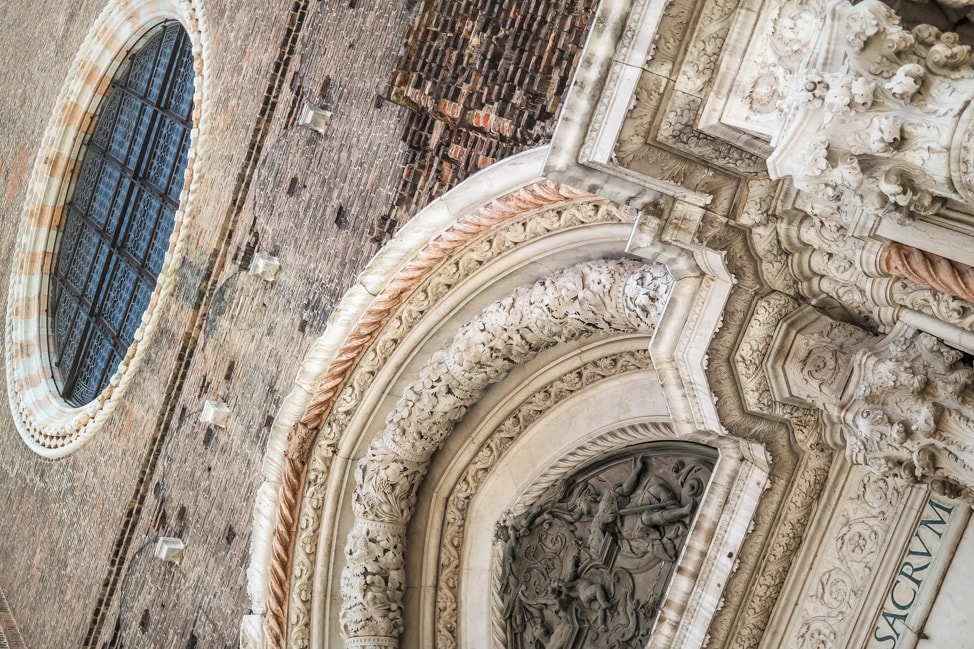
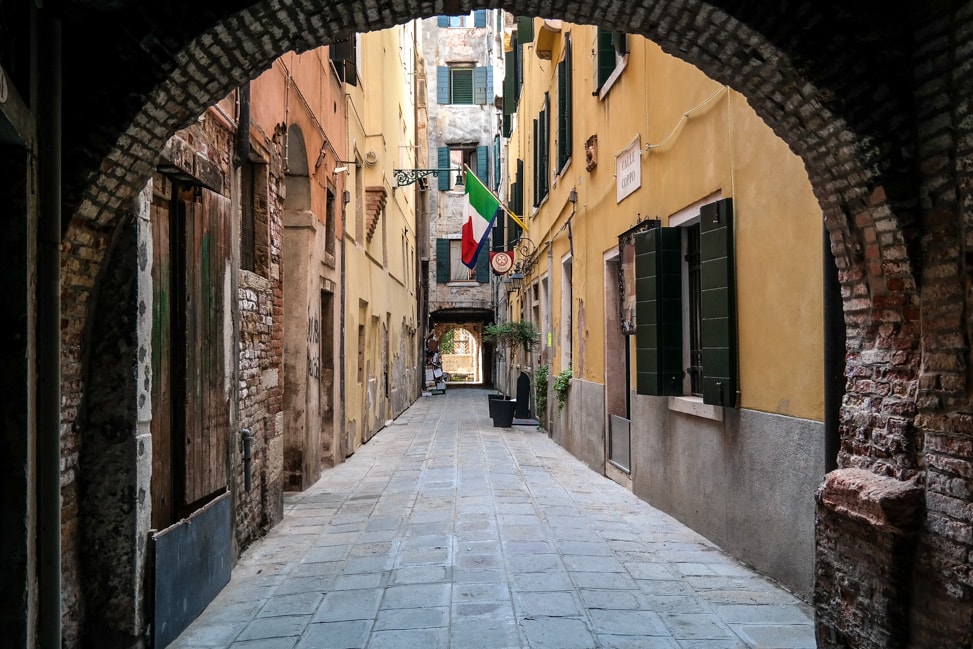
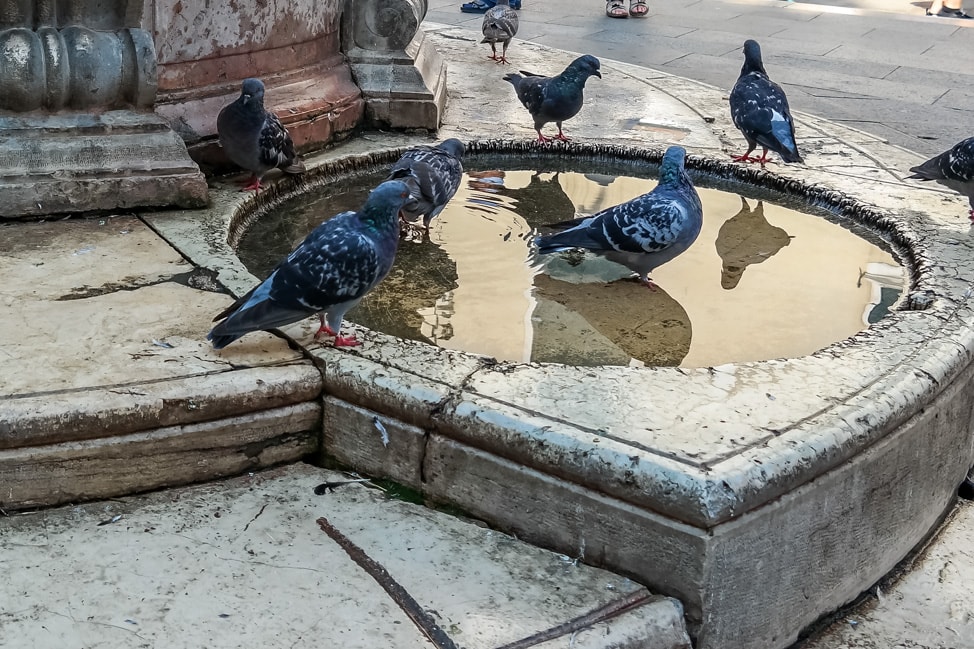
Luckily, I had a Venice expert in the form of local guide Matteo from the tour company LivItaly Tours, who had the pleasure of answering all of my questions. Our small group size (6 max), meant that I had plenty of opportunities to ask questions. Thankfully, Matteo was very patient.
As we wandered the tiny streets on our Venice walking tour, our small group navigating from Rialto to St. Mark’s Square, the logistics of the city continued to astound me. Delivery boats haul in supplies to restaurants and hotels, Amazon orders are carted around via massive manually-powered carts. Trash collection, ambulance services, and police run a city entirely by boat, unfazed by the extra effort required to do so.
Tourists gawk and giggle at the branded delivery boats, while locals followed their camera lenses to see what is so interesting.
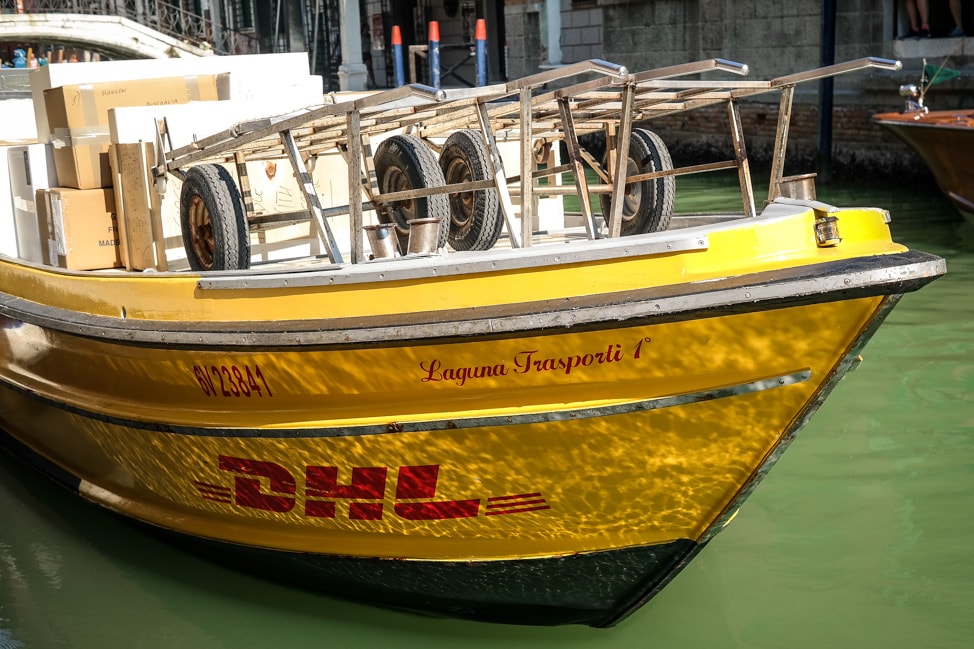
Venice was originally built as a series of villages on islands in a lagoon because the water provided safety. Then, as the disconnected villages flourished, they created a central market space, where Rialto Market now stands. Eventually, bridges came into the mix, and a city of boats also gained the designation of being a city of bridges and walkways.
The fresh water dilemma was solved with massive public wells collecting rainwater, and using (imported) clay to keep out the seawater.
When life hands you lemons, and all that jazz.
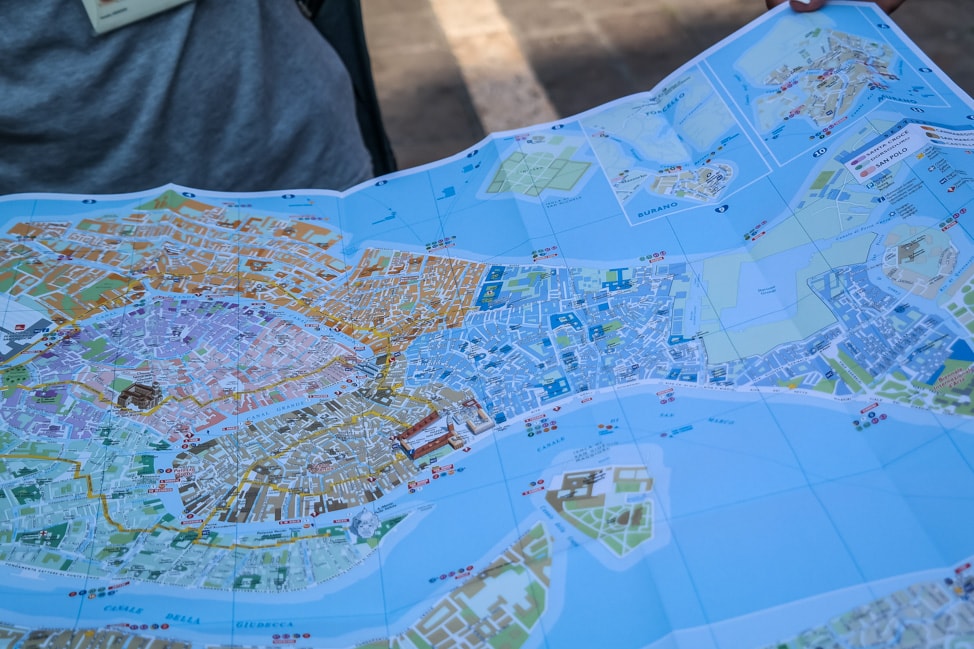
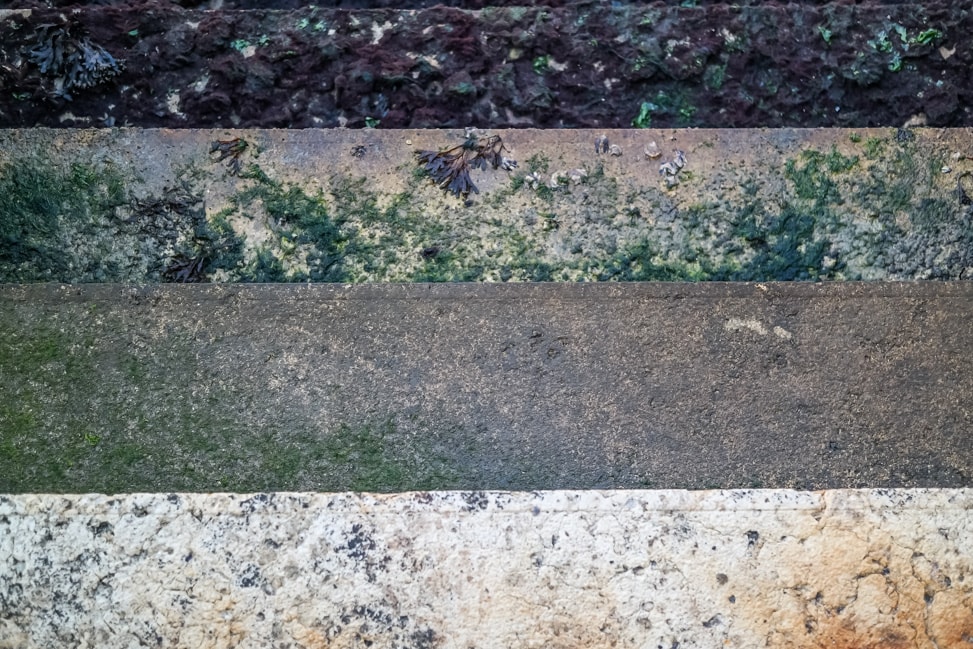
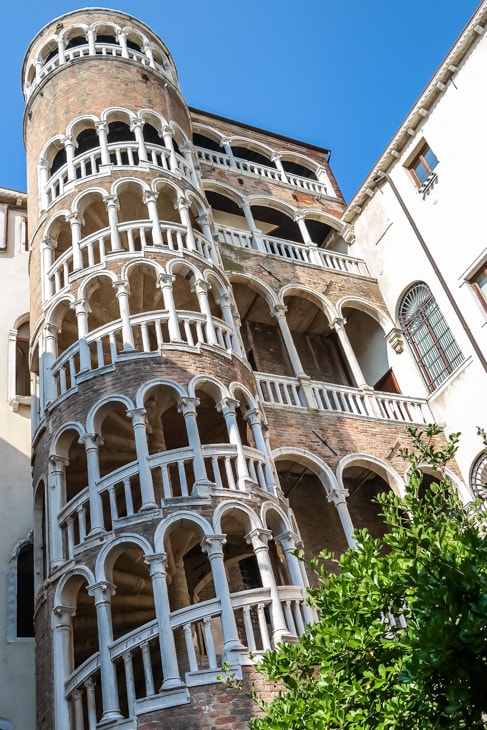
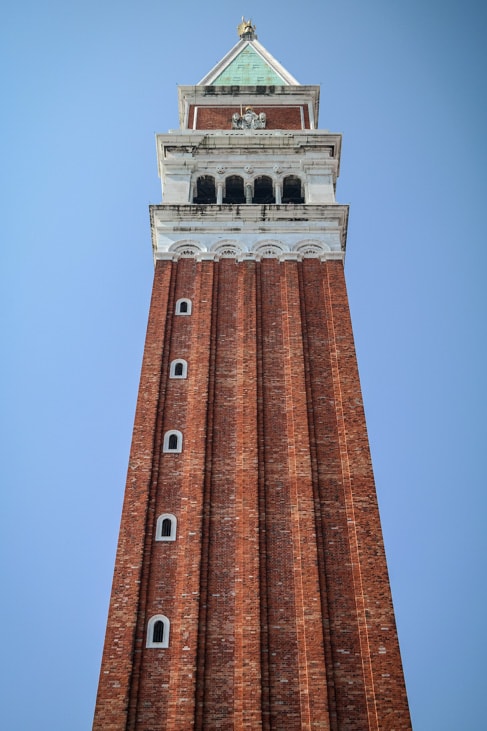
Even with that succinct explanation about Venice’s birth, I was still not satisfied. Why didn’t that life-threatening conundrum of limited fresh water drive people away long before it did? Why didn’t the massive efforts to build on unstable islands (no hard rock here, only layers and layers of silt) cause people to just throw in the towel and head the short distance to dry land?
Why did they keep going? And building? And expanding?

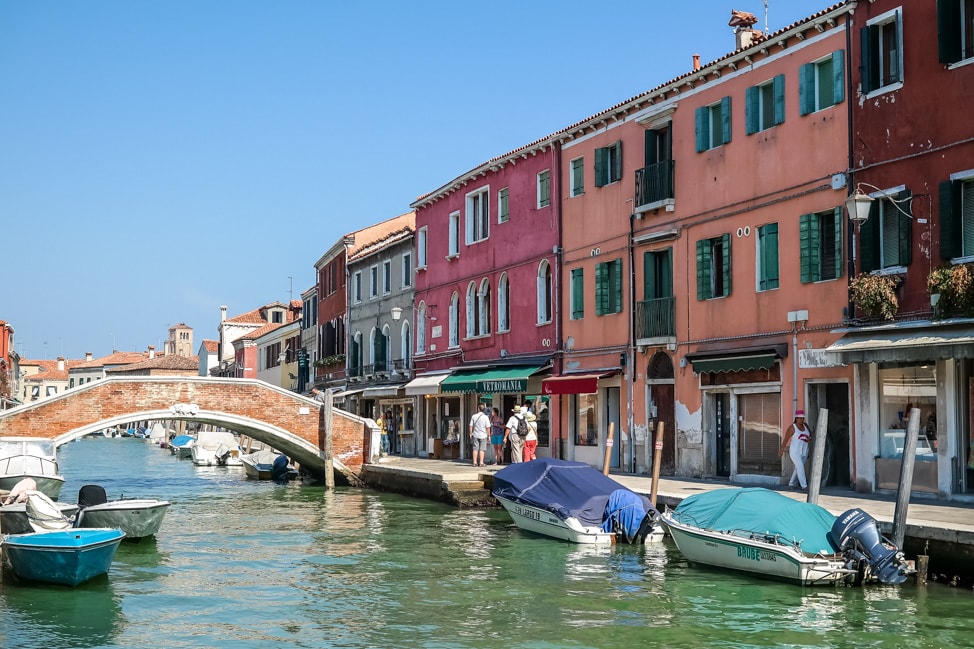

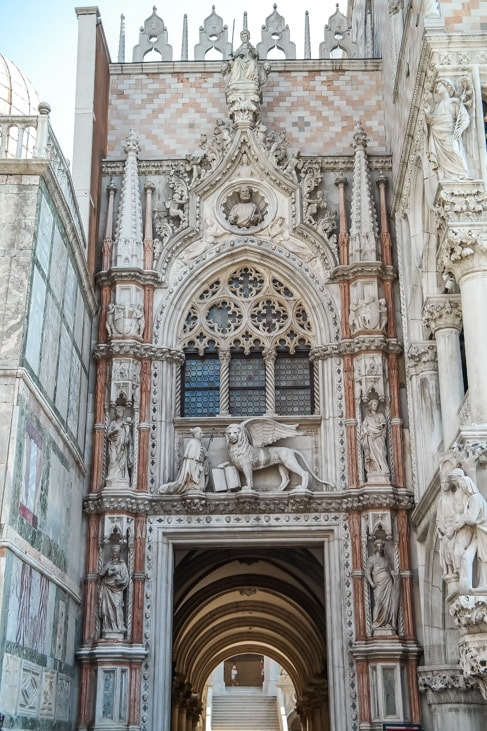
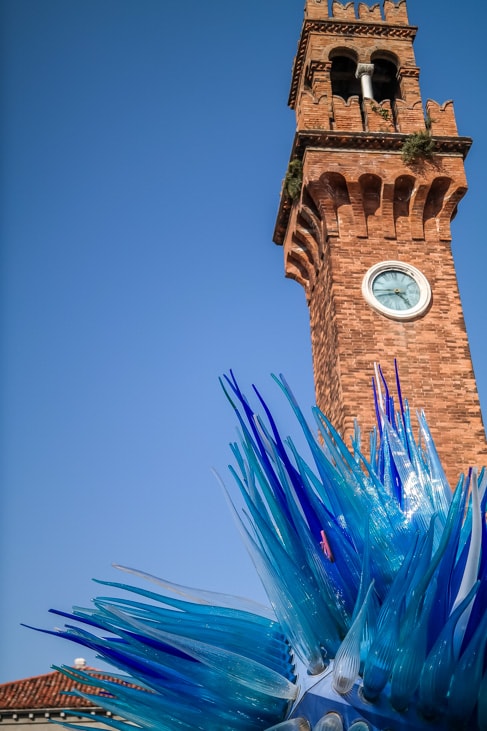
Matteo explained further. After the fall of the Roman empire, invaders flourished, and people sought shelter in the channels and lagoons offshore. It took about thirty years for those early settlers to decide to stay, and life in those days was actually easier on the water.
Rich in fish and salt, early Venetians traded for other necessary goods. The two or three miles that separate Venice from the mainland was far enough back then to not only protect citizens from invaders but also allow Venice to remain politically separate from Italy as well and pursue trade with the east.
They had to stay, and then they chose to stay. They had to innovate, and then they chose to continue to innovate.
The Venetians are a scrappy bunch, it turns out. All those gorgeous buildings, intricate facades, and decorative touches may be stunningly distracting, but underneath it all, Venice is built from brick, one of the most humble materials of all. Even St. Mark’s Cathedral, presiding over the city in all of its glory, is brick.
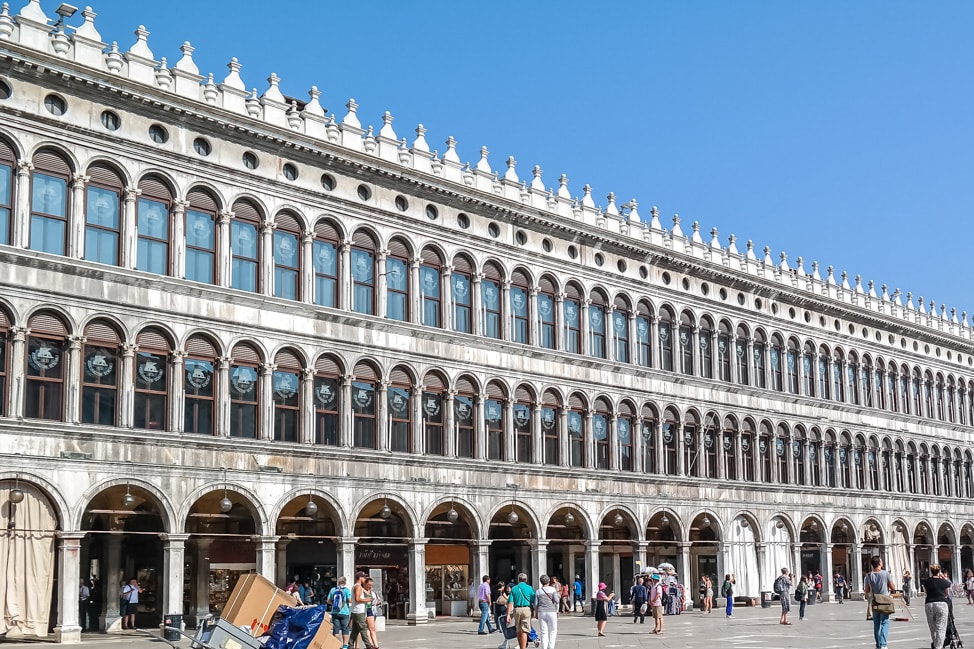
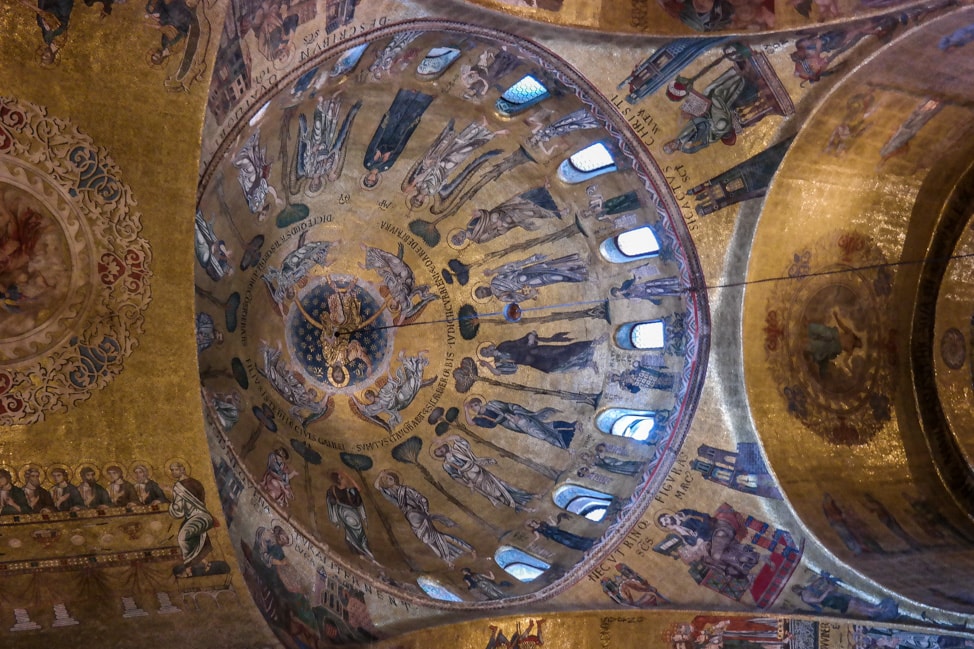
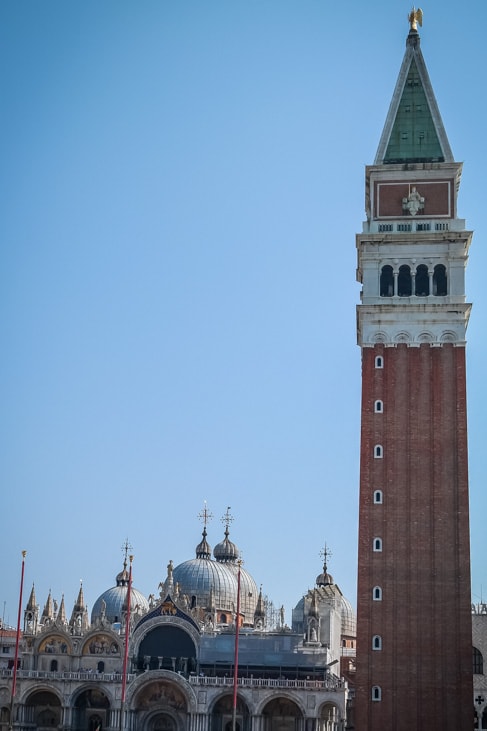
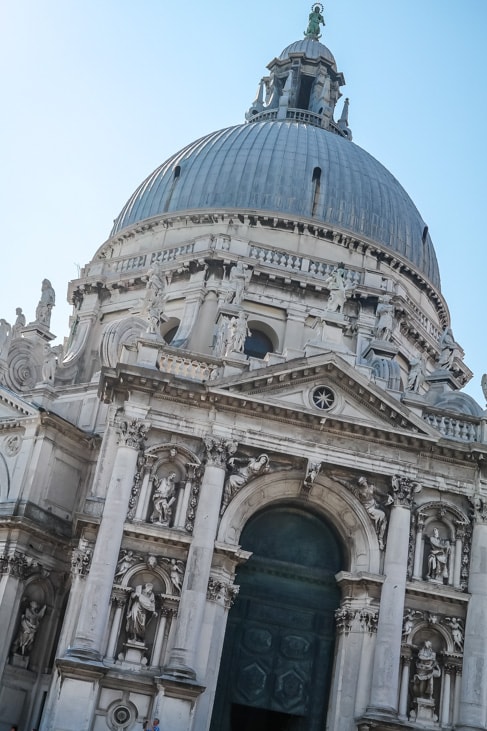
Not only scrappy, Venetians are smart. They figured out how to supply fresh water to the masses, build with lightweight materials so that the city didn’t immediately sink into the lagoon, and how to offer all the comforts of modern life to a population floating in the water. Not too shabby.
I left Matteo and the Venice Small Group Walking Tour with St. Mark’s with newfound peace around Venice and why it is what it is. I watched a primary school release its students for the day and saw as families made their way home, over the bridges and along the labyrinth of walkways. I indulged in Venice’s delicious food and drink, knowing that the effort to supply the city is a massive, but well-oiled machine.
And above all, I saw Venice in a new light, and the scrappy resourcefulness that made it the city it is today.
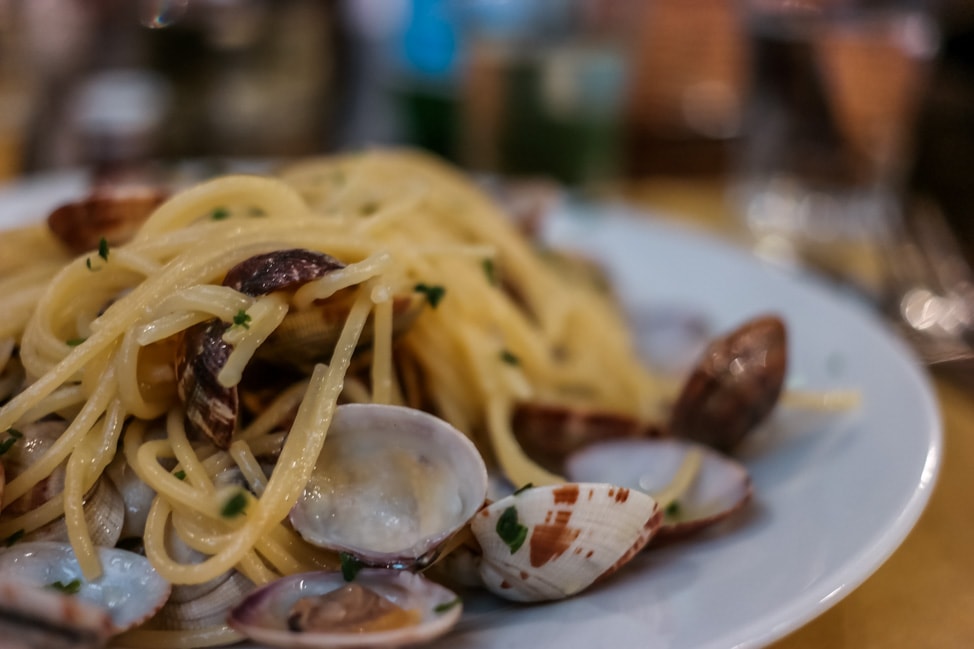
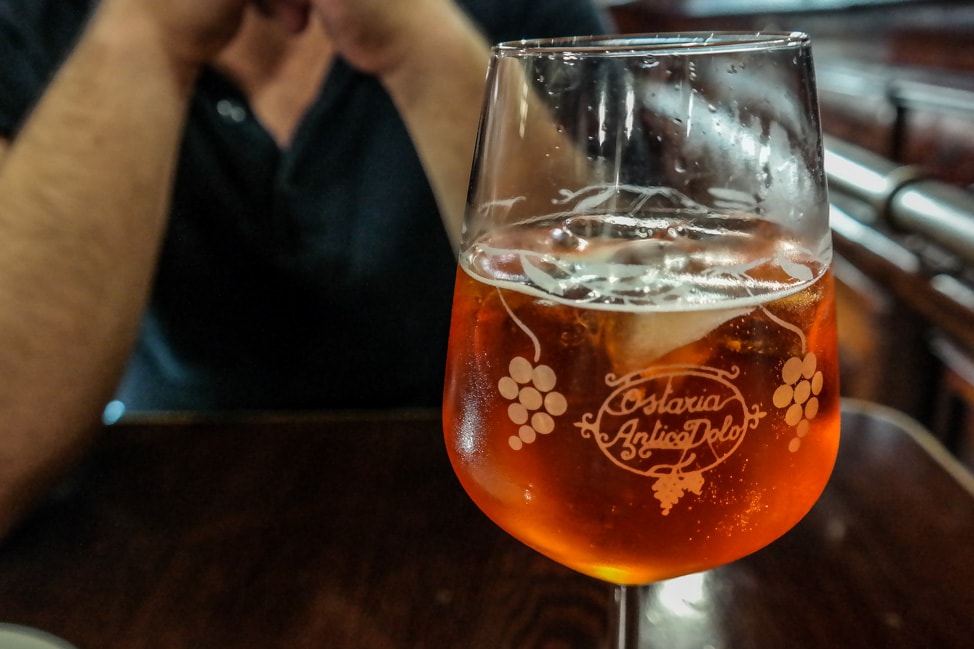
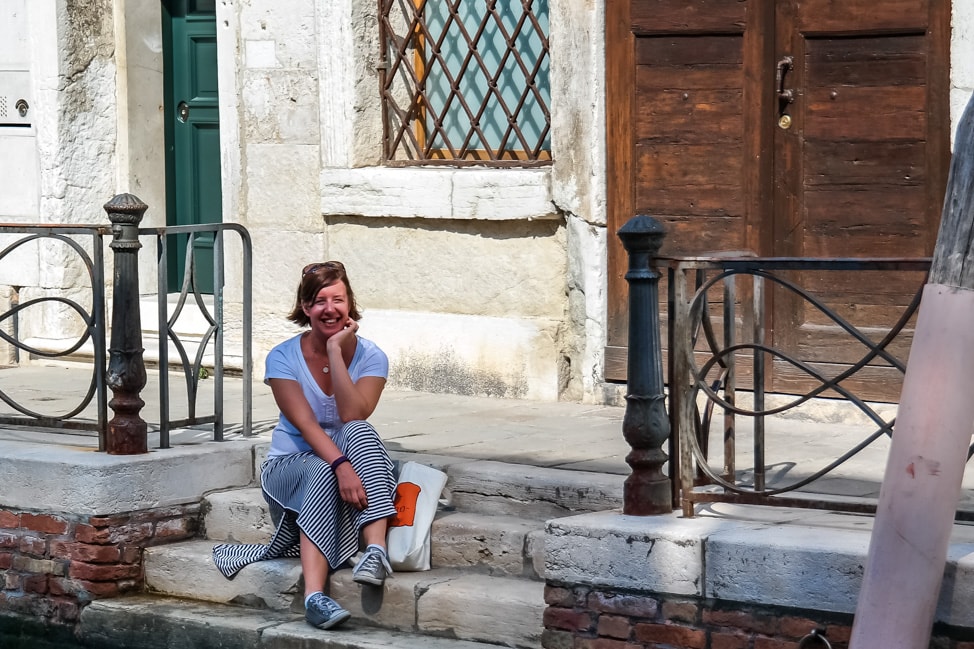

We learned so much in Venice, thanks, in most part, to Matteo of LivItaly. The Venice walking tour we went on, of Rialto and St. Mark’s was complimentary, but we will be spewing Venetian knowledge to anyone who will listen for many years to come.
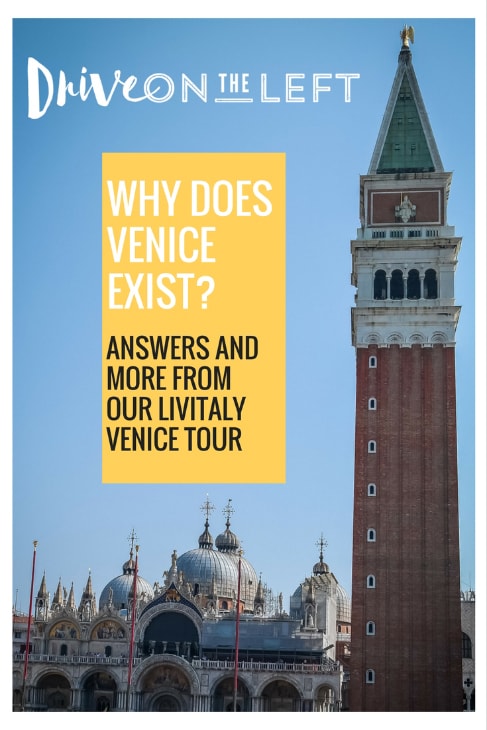

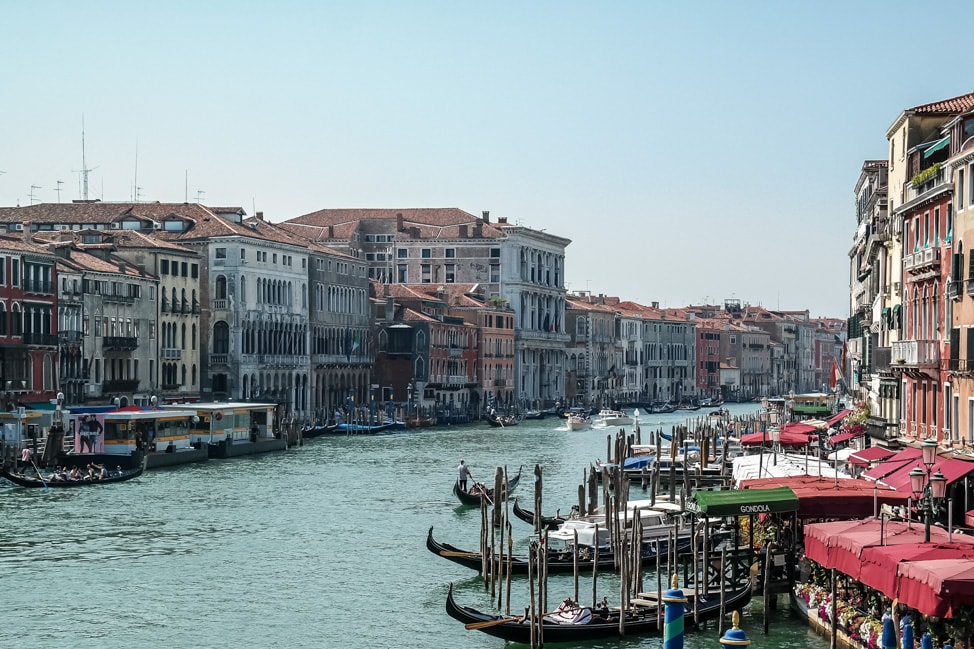










These beautiful photos of Venice make me want to get back for another visit. We took a tour of Rome with LivItaly and loved it. It’s fun to get the story behind the views.
Glad you had a great experience with LivItaly as well. We really loved our guide who made everything come to life in a way that books just can’t!
Fascinating! I’ve never been, but I love the history lesson and the beautiful perspective you bring to these photos.
Thanks Valerie…such a fascinating and unique city, that’s for sure. Can’t think of any other city that’s built on silt and wooden stakes.
I always have unusual questions when I travel and it’s great when you are with a local guide to get them answered. I’m always the one at the front asking the questions and my boyfriend is always mortified haha! I’ve been thinking about going to Venice for a while or Italy at least and I would definitely give LiviItaly a go, especially if I can combine my odd questions getting answered and snapping those gorgeous views! <3
Melissa Jones recently posted…Complete Guide to Dublin’s Guinness Storehouse
must say, our tour guide Matteo, was one of the most knowledgable guides we’ve ever had on a walk. Helps that he studied archaeology and did many excavations himself around Venice!
What stunning images! And they pair so beautifully to your words. I haven’t been to Venice, but the images of canals, bridges and twisty alleys running through the city make me want get on a plane asap.
Adelina recently posted…7 Free Things To Do in Toronto + WIN A Free Night Stay at a Radisson
it is beautiful, but also, so crowded! All of the small side streets though are usually devoid of people, which is crazy. Most tourists stick to the busy shopping streets, which is missing the whole fun of Venice.
Venice is one of the cities on my list for a long time. I didn’t know that it has originated from numerous island villages) Thank you for sharing great views and experience!
yeah, we had no idea either. 112 in total. A truly unique place. Not many cites in the world built on silt islands…
You got some lovely shots while in Venice- they make the tight spaces seem more spacious
Carol from Wayfaring Views recently posted…Book Nerd’s Guide to 4 Museums in Chicago
Thanks…it just took a little camera magic!
Loved this! Sounds like a great way to explore the city. When I was there I basically just kept wandering and getting lost. Enjoyed learning more about the history of how it became what it is. Thanks for sharing.
Megan recently posted…A Foodie’s Paradise In San Diego’s Little Italy
I love Venice! I spend there 3 months working as a guide and I know every corner. I am glad you enjoyed the city, it is the prettiest one in Italy.
I had the exact same question when I went to Venice! How does this place even make sense?! Great to hear your more clear explanation. Basically I gathered that the original settlers were fleeing persecution, then when the political winds changed they found themselves very well positioned for trade (aka power). Then the novelty of the place caused it to become a haven for the rich and famous who brought artisans along with them to design their mansions. Interesting to hear about the scrappy innovators who made Venice what it was. And I LOVED your photos!
Thanks!
Such a fascinating city. I haven’t been in 10 years but I remember that feeling of walking around and wondering about the canals and the ability for it to survive corrosion.
Ah I love Venice! Your post is making me miss it. It’s just such a beautiful European city that no one should miss on their travels!
it’s such a unique city. The crowds are a little crazy though, and saw that protesters were trying to block cruise ships from docking just this week. In peak season, it sees 30,000 cruise visitors in a day, which just isn’t sustainable in a city of 55,000. Hopefully, they can find a way to preserve the beauty of the city.
Your beautiful shots of Venice make me miss the city.I especially like your photo of the concrete stairs – very interesting perspective, I wish I could be just as creative.
RaW | Ramble and Wander recently posted…Malaysia: Citrawarna Kuala Lumpur 2016
It’s the same question I ask myself about Arizona and Nevada being golf destinations – those lush green fairways just aren’t natural, who in the world came up with that idea?!
Leigh | Campfires & Concierges recently posted…Visiting the Teotihuacan Pyramids in Mexico
lots and lots of irrigation! It’s how I felt going from LA to Palm Springs. You go from straight up desert to lush, green lawns instantly. Doesn’t seem like the best use of water.